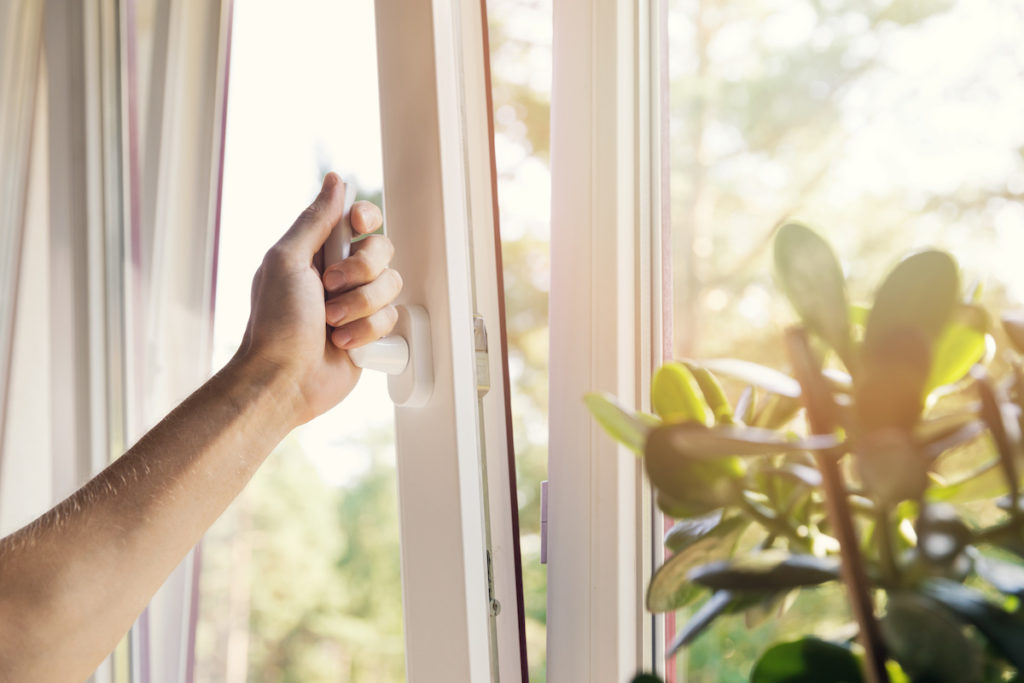Now that we are making our way into the colder, darker months of winter, we are spending most of our time indoors. For many of us, that means breathing in the stale air in our homes and offices instead of partaking in the buffet of fresh air that was available to us during the summer months.
For people with allergies and asthma, this can bring on a wave of symptoms that may last for the entire season and make for a very unhappy winter. While those with no known breathing problems may not feel the need to act with urgency regarding indoor air quality, it is always wise to try to improve something so simple, especially when the average person takes an estimated 25,000 breaths a day.
Did you know indoor air quality is likely to be 5 times worse than the air outdoors (per the Environmental Protection Agency)? This number is much higher in homes with a basement or crawl space and can depend on ventilation as well as exposure to toxins. One NASA study cited that the average American home contains air contaminants such as Trichloroethylene, Formaldehyde, Benzene, Xylene, and Ammonia among many others.
So what are we domesticated humans to do? We can’t just inhale this polluted air all winter and expect to stave off the colds and flu and various versions of seasonal affective disorder if something as simple as breathing is in jeopardy. Before anxiety sets in, we’re here to tell you that it is going to be okay. There are really simple things you can do to improve your indoor air quality.
Simple Steps to Improve Your Indoor Air Quality
First, if you have carpeting throughout your home, you can choose to replace it with hardwood, as this traps less dust and other particulate matter from the air. If that isn’t an option, make sure to vacuum at least once or twice a week (more if you have pets) using a vacuum fitted with a HEPA filter. If you have throw rugs and curtains, wash them once per week to remove dust mites and other dander.
Many of us have heard that houseplants can improve indoor air quality. This issue is currently under debate. However, a NASA study did find that plants could absorb certain toxins from our air, with Peace Lilies, English Ivy and Florist’s Chrysanthemum being some of the best at the job. If you would like further information, The Nasa Guide to Air Filtering Houseplants is a wonderful resource.
Moreover, something as simple as opening the windows every once in a while, even in the depths of winter, can allow fresh air to circulate and allergens and stale air to escape. Visit the Asthma and Allergy Foundation of America and check out their great infographics for more ideas to improve indoor air quality.
If you are looking for a permanent and all-encompassing solution for better air quality, you can contact our team of professionals at Heating Specialties at (866) 923-2653 for an in-home consultation to diagnose the problem and help you choose the right Indoor Air Quality (IAQ) system for your NJ home. These can range from mechanical filtration systems to air cleaners and purifiers to increasing your ventilation.
Cheers to a healthy and happy winter, friends!
Sources:
NASA infographic https://lifehacker.com/this-graphic-shows-the-best-air-cleaning-plants-accord-1705307836
NASA Study https://ntrs.nasa.gov/search.jsp?R=19930073077
Asthma and Allergy Foundation of America https://www.aafa.org/indoor-air-quality/
Environmental Protection Agency: Improving Indoor Air Quality https://www.epa.gov/indoor-air-quality-iaq/improving-indoor-air-quality

